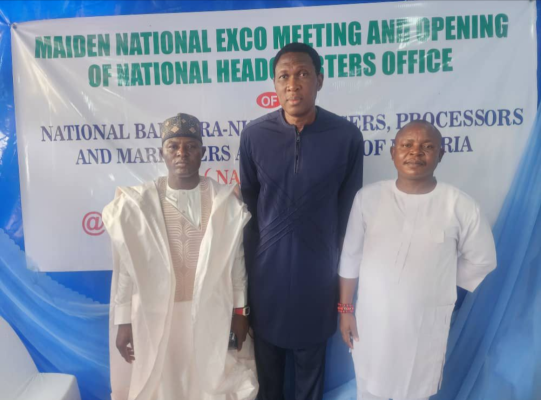![Olanipekun Olukoyede [PHOTO CREDIT: EFCC on Facebook]](https://stag-blogsites.itechnolabs.co.in/wp-content/uploads/2025/09/46828832_2081965045159308_515682584198381568_o-e1594813549784-1.jpg)
By Editorial Staff
Olanipekun Olukoyede: Charting a Quiet Revolution at Nigeria’s EFCC
When President Bola Ahmed Tinubu selected Olanipekun “Ola” Olukoyede as the new Chairman of the Economic and Financial Crimes Commission (EFCC) in October 2023, many Nigerians expressed cautious hope for meaningful change. Nearly two years on, Olukoyede’s impact is becoming clear — and by many accounts, transformative. According to EFCC statistics and multiple reports, the organization has witnessed significant culture shifts, improved professionalism, and a new focus on results over rhetoric.
Background: Leadership Rooted in Legal and Regulatory Experience
Olukoyede brings strong credentials as a lawyer, fraud examiner, and compliance expert, with wide-ranging experience at home and overseas. Having previously served as the agency’s Chief of Staff and later as its Secretary, he had direct insight into the EFCC’s internal mechanisms — and its recurring challenges. Industry watchers like Lagos-based legal analyst M. Ibrahim have pointed to Olukoyede’s blend of insider knowledge and international best practices as exactly what the EFCC needs at a critical moment in Nigeria’s history.
According to analyst Femi Olorunsola (Punch, Nov 2023), Olukoyede “came in with a resolve not just to catch fraudsters, but to reform how the institution works and is perceived.” This included, he noted, a public commitment to wage the anti-corruption battle with impartiality and a humane touch — a stance resonating with both Nigerian and international observers.
Results in Focus: Rapid Recoveries, High Convictions, and Strategic Crackdowns
Within his first 100 days, the EFCC under Olukoyede set ambitious new records:
- Recovered over ₦70.5 billion, according to public EFCC briefings.
- Processed more than 2,600 petitions from members of the public and private sector.
- Secured 747 convictions, a significant jump in successful prosecutions from prior years.
- Pushed asset recovery to new heights, including the forfeiture of a university and a prominent Lagos estate with at least 753 housing units.
Moreover, the EFCC tackled major syndicates — from romance scams fueling local and international heartbreak, to complex cryptocurrency fraud networks. Security analyst Ijeoma Akande noted in an interview that “the level of precision and sweep in recent EFCC operations is unprecedented and shows lessons learned from prior missteps.” Unlike previous eras marked by sensational media coverage or perceived witch hunts, these busts proceeded with minimal fanfare, relying on court outcomes and documented evidence.
Internal Accountability: Reforming the EFCC from Within
One of Olukoyede’s defining moves has been his willingness to address corruption within the EFCC itself. In a rare public admission for a Nigerian agency, he acknowledged the presence of unethical practices among staff. According to official EFCC press statements (Premium Times, Jan 2024), 27 employees were dismissed for various forms of misconduct, and an internal probe was initiated into a high-profile $400,000 scandal.
This break with the culture of silence sets a new bar for institutional transparency. Policy expert and anti-corruption advocate, Dr. Chukwuemeka Eze, observed, “Nigeria’s public sector rarely punishes its own without external pressure. What the EFCC leadership is doing here is unique — and absolutely vital for credibility.”
International Recognition and Local Impact
Olukoyede’s approach is also gaining recognition beyond Nigeria’s borders. He has been awarded local integrity prizes in Lagos and, according to Channels TV, received a certificate of recognition from the Canadian government for his part in cross-border fraud prevention. International partners reportedly cite the agency’s “professional, low-drama style” as a model for anti-corruption units elsewhere in West Africa.
Domestically, feedback is varied but generally positive. Advocacy groups such as the Socio-Economic Rights and Accountability Project (SERAP) have called for expanded whistleblower protections and continued vigilance. “Progress is real but must be institutionalized so it survives beyond one chairman,” a SERAP spokesperson told NOWAHALAZONE.
Staying Above the Political Fray: Public Perception and Criticisms
Nigeria’s anti-graft history is littered with allegations of selective enforcement, particularly in politically charged seasons. Commentators have noted that under Olukoyede, the EFCC appears to be actively steering clear of undue political influence. “His public posture is non-partisan, focused squarely on evidence and due process,” according to governance expert Ayodele Balogun. However, some critics remain sceptical, especially as high-profile politicians and officials continue to face scrutiny. For example, analyst Gbenga Bamidele (ThisDay, March 2024) observed that “skeptics will always question motives, but what matters most is institutionalizing these reforms.”
A random survey of young professionals in Abuja and Lagos found cautious optimism. Entrepreneur Bisi Adeola said, “As long as the EFCC targets both the powerful and the ordinary, and avoids media spectacles, public confidence will continue to grow.” Still, some legal practitioners warn that sustaining impartiality requires ongoing oversight, especially as the 2027 general elections approach.
Comparative Analysis: Lessons for West Africa and Beyond
Across Africa, corruption remains a central challenge to economic growth and social trust. According to the 2023 Transparency International Corruption Perceptions Index, Nigeria ranks 150 out of 180 countries — a reminder of the daunting work ahead. Regional neighbors like Ghana have launched similar reform agendas, but with mixed effectiveness.
Analysts suggest that the EFCC’s quieter, data-driven strategy can serve as a template for other anti-corruption agencies in West Africa. “The key lesson is that sustainable reform comes not from ‘name and shame’ campaigns, but from system-wide integrity and robust rule of law,” said Cameroonian legal scholar, Dr. Anne-Fabienne Tchana, in a panel hosted by the West Africa Corruption Watch.
Challenges Ahead: Sustaining Progress Amid Political, Social, and Economic Pressures
Despite these gains, challenges persist. Civil society leaders caution that progress could be reversed if oversight falters or political winds shift. The EFCC still faces resource limitations, mounting case backlogs, and periodic public resistance to high-profile seizures. Globally, Nigerians in the diaspora are keenly watching these developments, as remittances and international trade depend on strong anti-corruption credentials.
Olukoyede himself has acknowledged the need for continuous reform and citizen engagement. “Every success must be built upon,” he reportedly told staff in January 2024. “Our legitimacy depends on being fair, effective, and transparent.”
Conclusion: Can Quiet Leadership Transform Nigeria’s Anti-Corruption War?
Olanipekun Olukoyede’s understated approach appears to be yielding measurable progress in Nigeria’s battle against graft. By prioritising professionalism, encouraging internal accountability, and resisting political manipulation, he sets a new tone for enforcement bodies in Nigeria and across West Africa. As citizens, business owners, and foreign partners watch closely, the lingering question is whether these reforms will take root and endure — or fade with another change in leadership.
What’s your perspective? Do you believe that sustained, silent reform is the best way to combat corruption in Africa — or are bold, public interventions still needed? Share your views in the comments, and stay connected for more updates on anti-corruption efforts in Nigeria and beyond!
For general support, reach out to support@nowahalazone.com.
Stay updated on the latest anti-corruption developments and more—follow us on Facebook, X (Twitter), and Instagram!
Your voice matters: Tell us how you think Nigeria and West Africa can keep building institutions that truly serve our communities.










